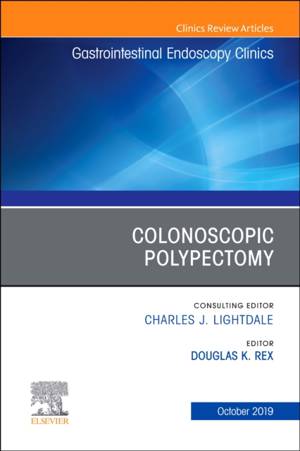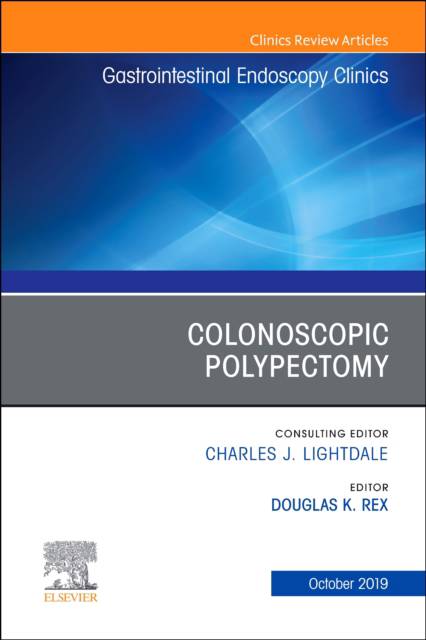
- Afhalen na 1 uur in een winkel met voorraad
- Gratis thuislevering in België vanaf € 30
- Ruim aanbod met 7 miljoen producten
- Afhalen na 1 uur in een winkel met voorraad
- Gratis thuislevering in België vanaf € 30
- Ruim aanbod met 7 miljoen producten
Zoeken
€ 169,45
+ 338 punten
Omschrijving
In collaboration with Consulting Editor, Dr. Charles Lightdale, Dr. Douglas K. Rex has put together a state-of the-art issue of the Gastrointestinal Endoscopy Clinics of North America devoted to Colonoscopic Polypectomy. Expert authors have contributed clinical reviews that address best practices, evidentiary support, and expert recommendations. Articles specifically address the following topics: Endoscopic assessment prior to resection: What the experts do; Reviewing the evidence that polypectomy prevents cancer; The cold revolution: how far can it go?; Best methods for resection of diminutive and small polyps; Teaching polypectomy and assessing the quality of polypectomy; How to perform wide-field EMR and follow-up examinations; Surgery vs. EMR vs. ESD for large polyps: Making sense of when to use which approach; How to learn and perform ESD and full thickness endoscopic resection in the colorectum in the U.S; Underwater endoscopic mucosal resection (EMR); Lesion retrieval, lesions handling, marking; and Closure of defects and management of complications. Readers will come away with the latest information they need to evaluate options for lesion resection and to improve outcomes.
Specificaties
Betrokkenen
- Auteur(s):
- Uitgeverij:
Inhoud
- Taal:
- Engels
- Reeks:
- Reeksnummer:
- nr. 29
Eigenschappen
- Productcode (EAN):
- 9780323708661
- Verschijningsdatum:
- 27/08/2019
- Uitvoering:
- Hardcover
- Formaat:
- Genaaid
- Afmetingen:
- 152 mm x 229 mm
- Gewicht:
- 430 g

Alleen bij Standaard Boekhandel
+ 338 punten op je klantenkaart van Standaard Boekhandel
Beoordelingen
We publiceren alleen reviews die voldoen aan de voorwaarden voor reviews. Bekijk onze voorwaarden voor reviews.











